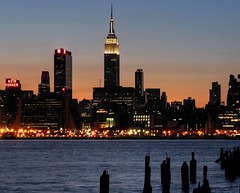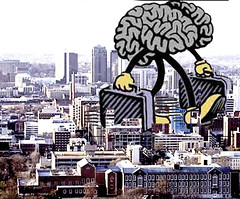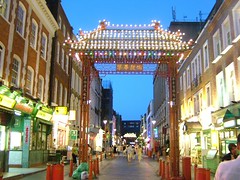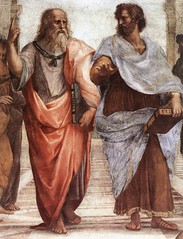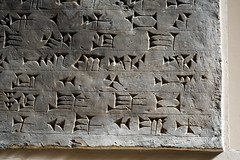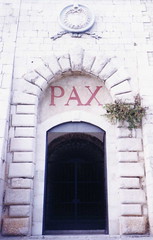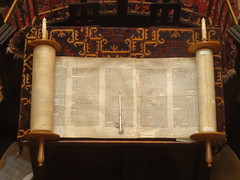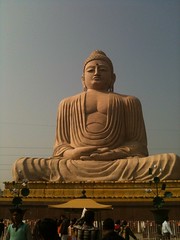| 4429757624 | Emilio Aguinaldo | Leader of the Filipino independence movement against Spain in 1895-1898. He proclaimed the Philippines independent in 1899, but his movement was crushed and he was captured by the US army in 1901. | | 0 |
| 4429757625 | Akbar I | Most illustrious sultan of the Mughal Empire (r. 1556-1605). He expanded the empire and pursued a policy of concilation with Hindus. | | 1 |
| 4429757626 | Akhenaten | Egyptian pharaoh (r. 1353-1335 BCE). He built a new capital at Amarna, fostered a new style of naturalistic art, and created a religious revolution by imposing worship of the sun-disk. | | 2 |
| 4429757627 | Alexander the Great | King of Macedonia in northern Greece, Between 334 and 323 BCE, he conquered the Persian Empire, reached the Indus Valley, founded many Greek-style cities, and spread Greek culture across the Middle East. | | 3 |
| 4429757628 | Salvador Allende | Socialist politician elected president of Chile in 1970 and overthrown by the military in 1973. He died during the military attack. | | 4 |
| 4429757629 | Richard Arkwright | English inventor and entrepreneur who became the wealthiest and most successful textile manufacturer of the early Industrial Revolution. He invented the water frame. | | 5 |
| 4429757630 | Ashoka | Third ruler of the Mauryan Empire in India (r. 270-232 BCE). He converted to Buddhism and broadcast his precepts on inscribed stones and pillars, the earliest surviving Indian writing. | | 6 |
| 4429757631 | Atahualpa | Last ruling Inca emperor of Peru. He was executed by the Spanish. | | 7 |
| 4429757632 | Octavian | Founder of the Roman Principate. After defeating all rivals between 31 BCE and 14 CE, he laid the groundwork for several centuries of stability and prosperity in the Roman Empire. Also called Augustus. | | 8 |
| 4429757633 | Emiliano Zapata | Revolutionary and leader of peasants in the Mexican Revolution. He mobilized landless peasants in south-central Mexico in an attempt to seize and divide the lands of the wealthy landowners. Though successful for a time, he was ultimately defeated and assassinated. | | 9 |
| 4429757634 | Zheng He | An imperial eunuch and Muslim, entrusted by the Ming emperor Yongle with a series of state voyages that took his gigantic ships though the Indian Ocean, from Southeast Asia to Africa. | | 10 |
| 4429757635 | Faisal I | Arab prince, leader of the Arab Revolt in World War I. The British made him king of Iraq in 1921, and he reigned under British protection until 1933. | | 11 |
| 4429757636 | Benjamin Franklin | American intellectual, inventor, and politician. He helped negotiate French support for the American Revolution. | | 12 |
| 4429757637 | Thomas Edison | American inventor best known for inventing the electric lightbulb, acoustic recording on wax cylinders, and motion pictures. | | 13 |
| 4429757638 | Albert Einstein | German physicist who developed the theory of relativity. | | 14 |
| 4429757639 | Yamagata Aritomo | One of the leaders of the Meiji Restoration. | | 15 |
| 4429757640 | Yongle | He sponsored the building of the Forbidden City, a huge encyclopedia project, the expeditions of Zheng He, and the reopening of China's borders to trade and travel. | | 16 |
| 4429757641 | Yuan Shikai | Chinese general and first president of the Chinese Republic (1912-1916). He stood in the way of Sun Yat-sen's movement. | | 17 |
| 4429757642 | Ibn Battuta | Moroccan Muslim scholar, the most widely traveled individual of his time. He wrote a detailed account of his visits to Islamic lands from China to Spain and the western Sudan. | | 18 |
| 4429757643 | Hipolito Irigoyen | Argentine politician, president of Argentina from 1916-1922 and 1928-1930. The first president elected by universal male suffrage, he began his presidency as a reformer, but later became conservative. | | 19 |
| 4429757644 | Napoleon Bonaparte | Overthrew French Directory in 1799 and became emperor of the French in 1804. Failed to defeat Great Britain and abdicatd in 1914. Returned to power briefly in 1815 but was defeated and died in exile. | | 20 |
| 4429757645 | Nasir al-Din Tusi | Persian mathematician and cosmologist whose academy near Tabriz provided the model for the movement of the planets that helped to inspire the Copernician model of the solar system. | | 21 |
| 4429757646 | Jawaharlal Nehru | Indian statesman. He succeeded Gandhi as the leader of the Indian National Congress. He negotiated the end of British colonial rule in India and became India's first prime minister (1947-1964). | | 22 |
| 4429757647 | Alexander Nevskii | Prince of Novgorod (r. 1236-1263). He submitted to the invading Mongols in 1240 and received recognition as the leader of the Russian princes under the Golden Horde. | | 23 |
| 4429757648 | Hammurabi | Amorite ruler of Babylon (r. 1792-1750 BCE). He conquered many city-states in southern and northern Mesopotamia and is best known for a code of laws, inscribed on a black stone pillar, illustrating the principles to be used in legal cases. | | 24 |
| 4429757649 | Hatshepsut | Queen of Egypt (r. 1473-1458 BCE). She dispatched a naval expedition down the Red Sea to Punt, the faraway source of myrrh. There is evidence of opposition to a woman as a ruler, and after her death her name and image were frequently defaced. | | 25 |
| 4429757650 | Henry the Navigator | Portuguese prince who promoted the study of navigation and directed voyages of exploration down the western coast of Africa. | | 26 |
| 4429757651 | Herodotus | Heir to the technique of historia ("investigation") developed by Greeks in the late Archaic period. He came from a Greek community in Anatolia and traveled extensively, collecting information in western Asia and the Mediterranean lands. He traced the antecedents of and chronicled the Persian Wars, thus originating the Western tradition of historical writing. | | 27 |
| 4429757652 | Theodor Herzl | Austrian journalist and founder of the Zionist movement urging the creation of a Jewish national homeland in Palestine. | | 28 |
| 4429757653 | Miguel Hidalgo y Costilla | Mexican priest who led the first stage of the Mexican independence war in 1810. He was captured and executed in 1811. | | 29 |
| 4429757654 | Adolf Hitler | Born in Austria, he became a radical German nationalist during World War I. He led the Nazi party in the 1920s and became dictator of Germany in 1933. He led Europe into World War II. | | 30 |
| 4429757655 | Saddam Hussein | President of Iraq from 1979 until overthrown by an American-led invasion in 2003. Waged war on Iran from 1980-1988. His invasion of Kuwait in 1990 was repulsed in the Persian Gulf War in 1991. | | 31 |
| 4429757656 | Ayatollah Ruhollah Khomeini | Shiite philosopher and cleric who led the overthrow of the shah of Iran in 1979 and created an Islamic republic. | | 32 |
| 4429757657 | Khubilai Khan | Last of the Mongol Great Khans (r. 1260-1294) and founder of the Yuan Empire. | | 33 |
| 4429757658 | Getulio Vargas | Dictator of Brazil from 1930-1945 and 1951-1954. Defeated in the presidential election of 1930, he overthrew the government and created the Estado Novo (New State), a dictatorship that emphasized industrialization and helped the urban poor but did little to alleviate the problems of the peasants. | | 34 |
| 4429757659 | Pancho Villa | A popular leader during the Mexican Revolution. An outlaw in his youth, when the revolution started, he formed a cavalry army in the north of Mexico and fought for the rights of the landless in collaboration with Zapata. He was assassinated in 1923. | | 35 |
| 4429757660 | George Washington | Military commander of the American Revolution. He was the first elected president of the United States (1789-1799). | | 36 |
| 4429757661 | James Watt | Scot who invented the condenser and other improvements that made the steam engine a practical source of power for industry and transportation. The watt, an electrical measurement, is named after him. | | 37 |
| 4429757662 | Josiah Wedgwood | English industrialist whose pottery works were the first to produce fine-quality pottery by industrial methods. | | 38 |
| 4429757663 | Woodrow Wilson | President of the United States (1913-1921) and the leading figure at the Paris Peace Conference of 1919. He was unable to persuade the US Congress to ratify the Treaty of Versailles or join the League of Nations. | | 39 |
| 4429757664 | Wilbur and Orville Wright | American bicycle mechanics; the first to build and fly an airplace, at Kitty Hawk, North Carolina, December 7, 1903. | | 40 |
| 4429757665 | Margaret Sanger | American nurse and author; pioneer in the movement for family planning; organized conferences and established birth control clinics. | | 41 |
| 4429757666 | Haile Selassie | Emperor of Ethiopia (r. 1930-19745) and symbol of African independence. He fought the Italian invasion of his country in 1935 and regained his throne during World War II, when British forces expelled the Italians. He ruled Ethiopia as a traditional autocracy until he was overthrown in 1974. | | 42 |
| 4429757667 | Shah Abbas I | The fifth and most renowned ruler of the Safavid dynasty in Iran. He moved the royal capital to Isfahan in 1598. | | 43 |
| 4429757668 | Shi Huangdi | Founder of the short-lived Qin dynasty and creator of the Chinese Empire (ca. 221-210 BCE). He is remembered for his ruthless conquests of rival states, standardization of practices, and forcible organization of labor for military and engineering tasks. His tomb, with its army of life-size terracotta soldiers, has been partially excavated. | | 44 |
| 4429757669 | Socrates | Athenian philosopher (ca. 470-399 BCE) who shifted the emphasis of philosophical investifation from questions of natural science to ethics and human behavior. He attracted young disciples from elite families but made enemies by revealing the ignorance and pretensions of others, culminating in his trial and execution by the Athenian state. | | 45 |
| 4429757670 | Josef Stalin | Bolshevik revolutionary, head of the Soviet Communist Party after 1924, and dictator of the Soviet Union from 1928-1953. He led the Soviet Union with an iron fist, using Five-Year Plans to increase industrial production and terror to crush all opposition. | | 46 |
| 4429757671 | Henry Morton Stanley | British-American explorer of Africa, famous for his expeditions in search of Dr. David Livingstone. He helped King Leopold II establish the Congo Free State. | | 47 |
| 4429757672 | Suleiman the Magnificent | The most illustrious sultan of the Ottoman Empire (r. 1520-1566); also known as Kanuni ("Lawgiver"). He significantly expanded the empire in the Balkans and eastern Mediterranean. | | 48 |
| 4429757673 | Sun Yat-sen | Chinese nationalist revolutionary, founder and leader of the Kuomintang until his death. He attempted to create a liberal deemocratic political movement in China but was thwarted by military leaders. | | 49 |
| 4429757674 | Tecumseh | Shawnee leader who attempted to organize an Amerindian confederacy to prevent the loss of additional territory to American settlers. He became an ally of the British in the War of 1812 and died in battle. | | 50 |
| 4429757675 | Timur | Member of a prominent family of the Mongols' Jagadai Khanate. He through conquest gained control over much of Central Asia and Iran. He consolidated the status of Sunni Islam as orthodox, and his descendants maintained his empire for nearly a century and founded the Mughal Empire in India. | | 51 |
| 4429757676 | Tupac Amaru II | Member of Inca aristocracy who led a rebellion against Spanish authorities in Peru in 1780-1781. He was captured and executed along with his wife and other members of his family. | | 52 |
| 4429757677 | Ramses II | A long-lived ruler of New Kingdom Egypt (r. 1290-1224 BCE). He reached an accomodation with the Hittites of Anatolia after a standoff in battle at Kadesh in Syria. He built on a grand scale throughout Egypt. | | 53 |
| 4429757678 | Rashid al-Din | Adviser to the Il-khan ruler Ghazan, who converted to Islam on his advice. | | 54 |
| 4429757679 | Cecil Rhodes | British entrepreneur and politician involved in the expansion of the British Empire from South Africa into Central Africa. The colonies of Zimbabwe and Zambia were originally named after him. | | 55 |
| 4429757680 | Maximilien Robespierre | Young provincial lawyer who led the most radical phases of the French Revolution. His execution ended the Reign of Terror. | | 56 |
| 4429757681 | Bartolome de Las Casas | First bishop of Chiapas, in southern Mexico. He devoted most of his life to protecting Amerindian peoples from exploitation. His major achievement was the New Laws of 1542, which limited the ability of Spanish settlers to compel Amerindians to labor for them. | | 57 |
| 4429757682 | Vladimir Lenin | Leader of the Bolshevik (later Communist) Party. He lived in exile in Switzerland until 1917, then returned to Russia to lead the Bolsheviks to victory during the Russian Revolution and the civil wars that followed. | | 58 |
| 4429757683 | Leopold II | King of Belgium (r. 1865-1909). He was active in encouraging the exploration of Central Africa and became the ruler of the Congo Free State (to 1908). | | 59 |
| 4429757684 | Li Shimin | One of the founders of the Tang Empire and its second emperor (r. 626-649). He led the expansion of the empire into Central Asia. | | 60 |
| 4429757685 | Toussaint L'Ouverture | Leader of the Haitian Revolution. He freed the slaves and gained effective independence for Haiti despite military interventions by the British and French. | | 61 |
| 4429757686 | Andrew Jackson | First president of the US to be born in humble circumstances. He was popular among frontier residents, urban workers, and small farmers. He had a successful political career as judge, general, congressman, senator, and president. After being denied the presidency in 1824 in a controversial election, he won in 1828 and was reelected in 1832. | | 62 |
| 4429757687 | Jesus | A Jew from Galilee in northern Israel who sought to reform Jewish beliefs and practices. He was executed as a revolutionary by the Romans. Hailed as the Messiah and Son of God by his followers, he became the central figure in Christianity, a belief system that developed in the centuries after his death. | | 63 |
| 4429757688 | Muhammad Ali Jinnah | Indian Muslim politician who founded the state of Pakistan. A lawyer by training, he joined the All-India Muslim League in 1913. As leader of the League from the 1920s on, he negotiated with the British and the Indian National Congress for Muslim participation in Indian politics. From 1940 on, he led the movement for the independence of India's Muslims in a separate state of Pakistan, founded in 1947. | | 64 |
| 4429757689 | Benito Juarez | President of Mexico (1858-1872). Born in poverty in Mexico, he was educated as a lawyer and rose to become chief justice of the Mexican supreme court and then president. He led Mexico's resistance to a French invasion in 1863 and the installation of Maximilian as emperor. | | 65 |
| 4429757690 | Darius I | Third ruler of the Persian Empire (r. 521-486 BCE). He crushed the widespread initial resistance to his rule and gave all major government posts to Persians rather than to Medes. He established a system of provinces and tribute, began construction of Persepolis, and expanded Persian control in the east (Pakistan) and west (northern Greece). | | 66 |
| 4429757691 | Deng Xiaoping | Communist Party leader who forced Chinese economic reforms after the death of Mao. | | 67 |
| 4429757692 | Blaise Diagne | Senegalese political leader. He was the first African elected to the French National Assembly. During World War I, in exchange for promises to give French citizenship to Senegalese, he helped recruit Africans to serve in the French army. After the war, he led a movement to abolish forced labor in Africa. | | 68 |
| 4429757693 | Bartolomeu Dias | Portuguese explorer who in 1488 led the first expedition to sail around the southern tip of Africa from the Atlantic and sight the Indian Ocean. | | 69 |
| 4429757694 | Osama bin Laden | Saudi-born Muslim extremist who funded the al Qaeda organization that was responsible for several terrorist attacks, including those on the World Trade Center and the Pentagon in 2001. | | 70 |
| 4429757695 | Otto von Bismarck | Chancellor of Prussia from 1862-1871, when he became chancellor of Germany. A conservative nationalist, he led Prussia to victory against Austria (1866) and France (1870) and was responsible for the creation of the German Empire in 1871. | | 71 |
| 4429757696 | Simon Bolivar | The most important military leader in the struggle for independence in South America. Born in Venezuela, he led military forces there and in Colombia, Ecuador, Peru, and Bolivia. | | 72 |
| 4429757697 | Joseph Brant | Mohawk leader who supported the British during the American Revolution. | | 73 |
| 4429757698 | Siddhartha Gautama | An Indian prince alternately known as the Buddha, who renounced his wealth and social position. After becoming "enlightened" he enunciated the principles of Buddhism. This doctrine evolved and spread throughout India and to Southeast, East, and Central Asia. | | 74 |
| 4429757699 | Vasco da Gama | Portuguese explorer. In 1497-1498 he led the first naval expedition from Europe to sail to India, opening an important commercial sea route. | | 75 |
| 4429757700 | Mahatma Gandhi | Leader of the Indian independence movement and advocate of nonviolent resistance. After being educated as a lawyer in England, he returned to India and became the leader of the Indian National Congress in 1920. He appealed to the poor, led nonviolent demonstrations against British colonial rule, and was jailed many times. Soon after independence he was assassinated for attempting to stop Hindu-Muslim rioting. | | 76 |
| 4429757701 | Giuseppe Garibaldi | Italian nationalist and revolutionary who conquered Sicily and Naples and added them to a unified Italy in 1860. | | 77 |
| 4429757702 | Genghis Khan | The title of Temujin when the ruled the Mongols (1206-1227). It means the "oceanic" or "universal" leader. He was the founder of the Mongol Empire. | | 78 |
| 4429757703 | Mikhail Gorbachev | Head of the Soviet Union from 1985-1991. His liberalization effort improved relations with the West, but he lost power after his reforms led to the collapse of communist governments in eastern Europe. | | 79 |
| 4429757704 | Jose Antonio Paez | Venezuelan soldier who led Simon Bolivar's cavalry force. He became a successful general in the war and built a powerful political base. He was unwilling to accept the constitutional authority of Bolivar's government in distant Bogota and declared Venezuela's independence from Gran Colombia in 1829. | | 80 |
| 4429757705 | Paul | A Jew from the Greek city of Tarsus in Anatolia, he initially persecuted the followers of Jesus but, after receiving a revelation on the road to Syrian Damasxua, became a Christian. Taking advantage of his Hellenized background and Roman citizenship, he traveled throughout Syria-Palestine, Anatolia, and Greece, preaching the new religion and establishing churches. Finding his greatest success among pagans ("gentiles"), he began the process by which Christianity separated from Judaism. | | 81 |
| 4429757706 | Pericles | Aristocratic leader who guided the Athenian state through the transformation to full participatory democracy for all male citizens, supervised construction of the Acropolis, and pursued a policy of imperial expansion that led to the Peloponnesian War. He formulated a strategy of attrition but died from the plague early in the war. | | 82 |
| 4429757707 | Eva Duarte Peron | Wife of an Argentinian president. Champion of the poor in Argentina. She was a gifted speaker and popular political leader who campaigned to improve the life of the urban poor by founding schools and hospitals and providing other social benefits. | | 83 |
| 4429757708 | Juan Peron | President of Argentina (1946-1955, 1973-1974). As a military officer, he championed the rights of labor. His wife played a major role in his 1946 election. He built up Argentinian industry, became very popular among the urban poor, but harmed the economy. | | 84 |
| 4429757709 | Peter the Great | Russian tzar (r. 1689-1725). He enthusiastically introduced Western languages and technologies to the Russian elite, moving the capital from Moscow to the new city of St. Petersburg. | | 85 |
| 4429757710 | Francisco Pizzarro | Spanish explorer who led the conquest of the Inca Empire of Peru in 1531-1533. | | 86 |
| 4429757711 | Ferdinand Magellan | Portuguese navigator who led the Spanish expedition of 1519-1522 that was the first to sail around the world. | | 87 |
| 4429757712 | Thomas Malthus | 18th century English intellectual who warned that population growth threatened future generations because, in his view, population growth would always outstrip increases in agricultural production. | | 88 |
| 4429757713 | Mansa Kankan Musa | Ruler of Mali (r. 1312-1337). His pilgrimage through Egypt to Mecca in 1324-1325 established the empire's reputation for wealth in the Mediterranean world. | | 89 |
| 4429757714 | Mao Zedong | Leader of the Chinese Communist Party (1927-1976). He led the Communists on the Long March (1934-1935) and rebuilt the Communist Party and Red Army during the Japanese occupation of China (1937-1945). After World War II, he led the Communists to victory over the Kuomintang. He ordered the Cultural Revolution in 1966. | | 90 |
| 4429757715 | Karl Marx | German journalist and philosopher, founder of the Marxist branch of socialism. He is known for two books: "The Communist Manifesto" and "Das Kapital." | | 91 |
| 4429757716 | Menelik II | Emperor of Ethiopia (r. 1889-1911). He enlarged Ethiopia to its present dimensions and defeated an Italian invasion at Adowa. | | 92 |
| 4429757717 | Moctezuma II | Last Aztec emperor, overthrown by the Spanish conquistador Hernan Cortes. | | 93 |
| 4429757718 | Jose Maria Morelos | Mexican priest and former student of Hidalgo, he led the forces fighting for Mexican independence until he was captured and executed in 1814. | | 94 |
| 4429757719 | Muhammad | Arab prophet; founder of the religion of Islam. | | 95 |
| 4429757720 | Muhammad Ali | Leader of Egyptian modernization in the early 19th century. He ruled Egypt as an Ottoman governor, but had imperial ambitions. His descendants ruled Egypt until overthrown in 1952. | | 96 |
| 4429757721 | Benito Mussolini | Fascist dictator of Italy (1922-1943). He led Italy to conquer Ethiopia (1935), joined Germany in the Axis pact (1936), and allied Italy with Germany in World War II. He was overthrown in 1943 when the Allies invaded Italy. | | 97 |
| 4429757722 | Lazaro Cardenas | President of Mexico (1934-1940). He brought major changes to Mexican life by distributing millions of acres of land to the peasants, bringing representatives of workers and farmers into the inner circle of politics, and nationalizing the oil industry. | | 98 |
| 4429757723 | Charlemagne | King of the Franks (r. 768-814); emperor (800-814). Through a series of military conquests he established the Carolingian Empire, which encompassed all of Gaul and parts of Germany and Italy. Though illiterate himself, he sponsored a brief intellectual revival. | | 99 |
| 4429757724 | Chiang Kai-shek | Chinese military and political leader. Succeeded Sun Yat-sen as head of the Kuomintang in 1923; headed the Chinese government from 1928-1948; fought against the Chinese Communists and Japanese invaders. After 1949 he headed the Chinese Nationalist government in Taiwan. | | 100 |
| 4429757725 | Cixi | Empress of China and mother of Emperor Guangxi. She put her son under house arrest, supported antiforeign movements, and resisted reforms of the Chinese government and armed forces. | | 101 |
| 4429757726 | Christopher Columbus | Genoese mariner who in the service of Spain led expeditions across the Atlantic, reestablishing contact between the peoples of the Americas and the Old World and opening the way to Spanish conquest and colonization. | | 102 |
| 4429757727 | Confucius | Western name for the Chinese philosopher Kongzi. His doctrine of duty and public service had a great influence on subsequent Chinese thought and served as a code of conduct for government officials. | | 103 |
| 4429757728 | Constantine | Roman emperor (r. 312-337). After reuniting the Roman Empire, he moved the capital to Constantinople and made Christianity a favored religion. | | 104 |
| 4429757729 | Hernan Cortes | Spanish explorer and conquistador who led the conquest of Aztec Mexico in 1519-1521 for Spain. | | 105 |
| 4429757730 | Cyrus | Founder of the Achaemenid Persian Empire. Between 550 and 530 BCE, he conquered Media, Lydia, and Babylon. Revered in the traditions of both Iran and the subject peoples, he employed Persians and Medes in his administration and respected the institutions and beliefs of subject peoples. | | 106 |


















